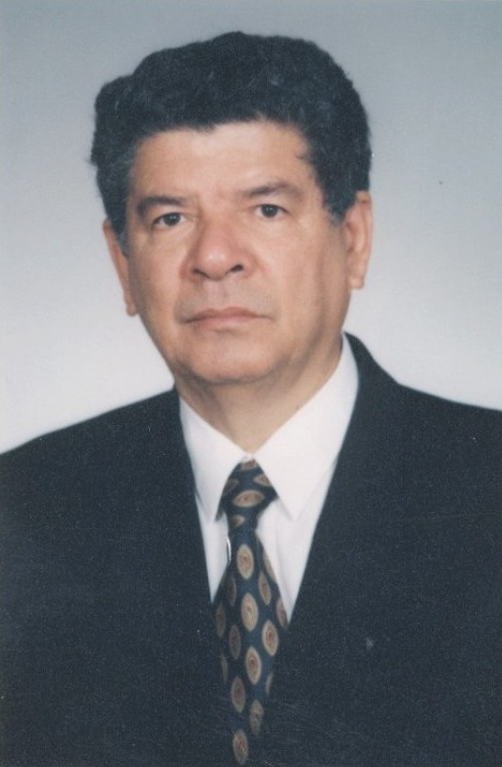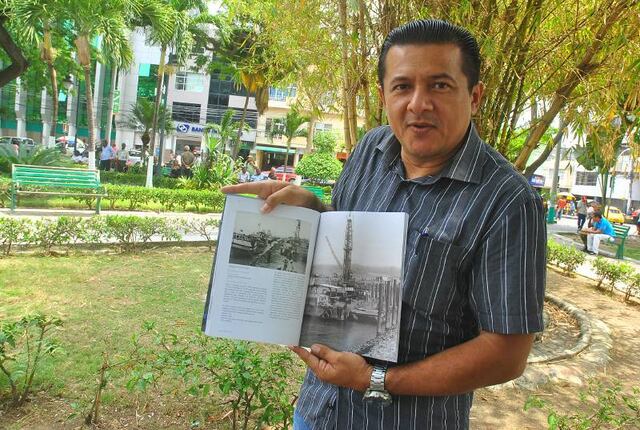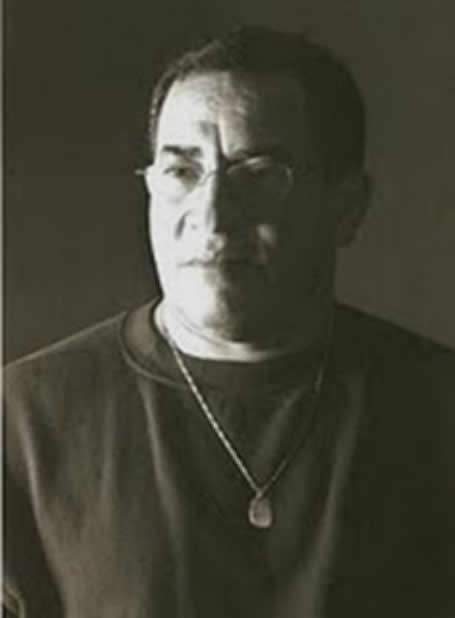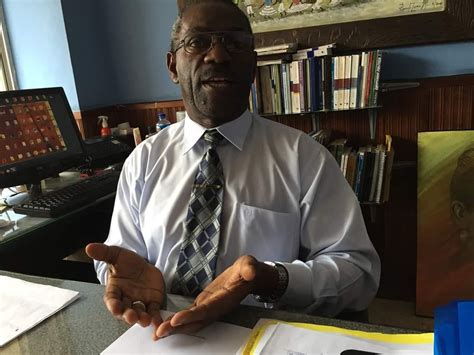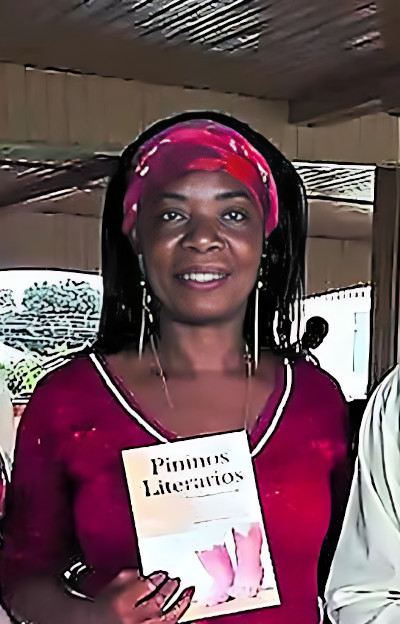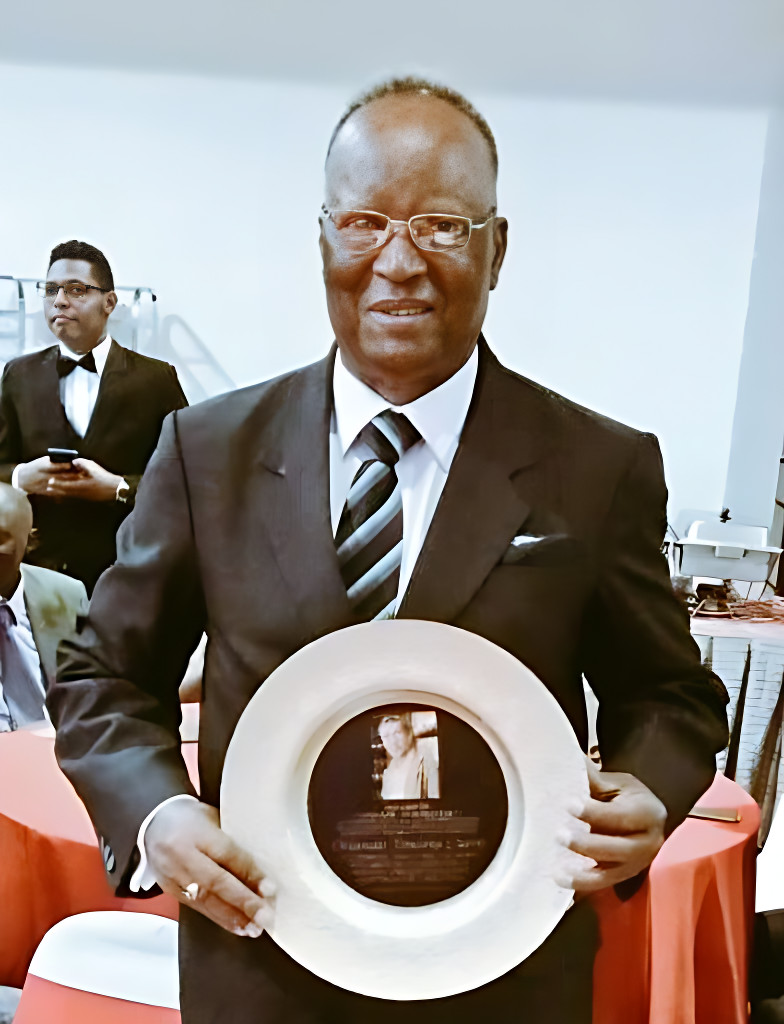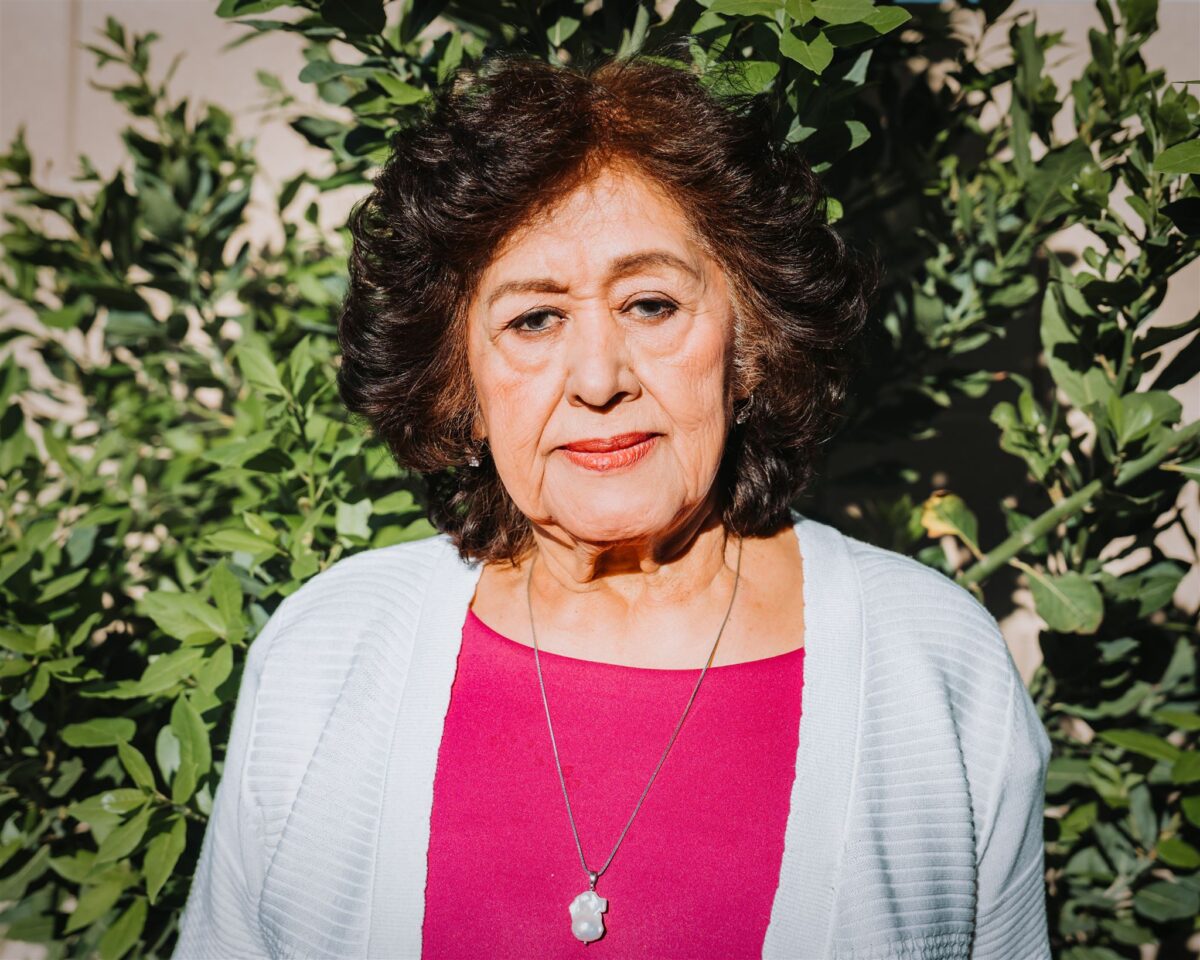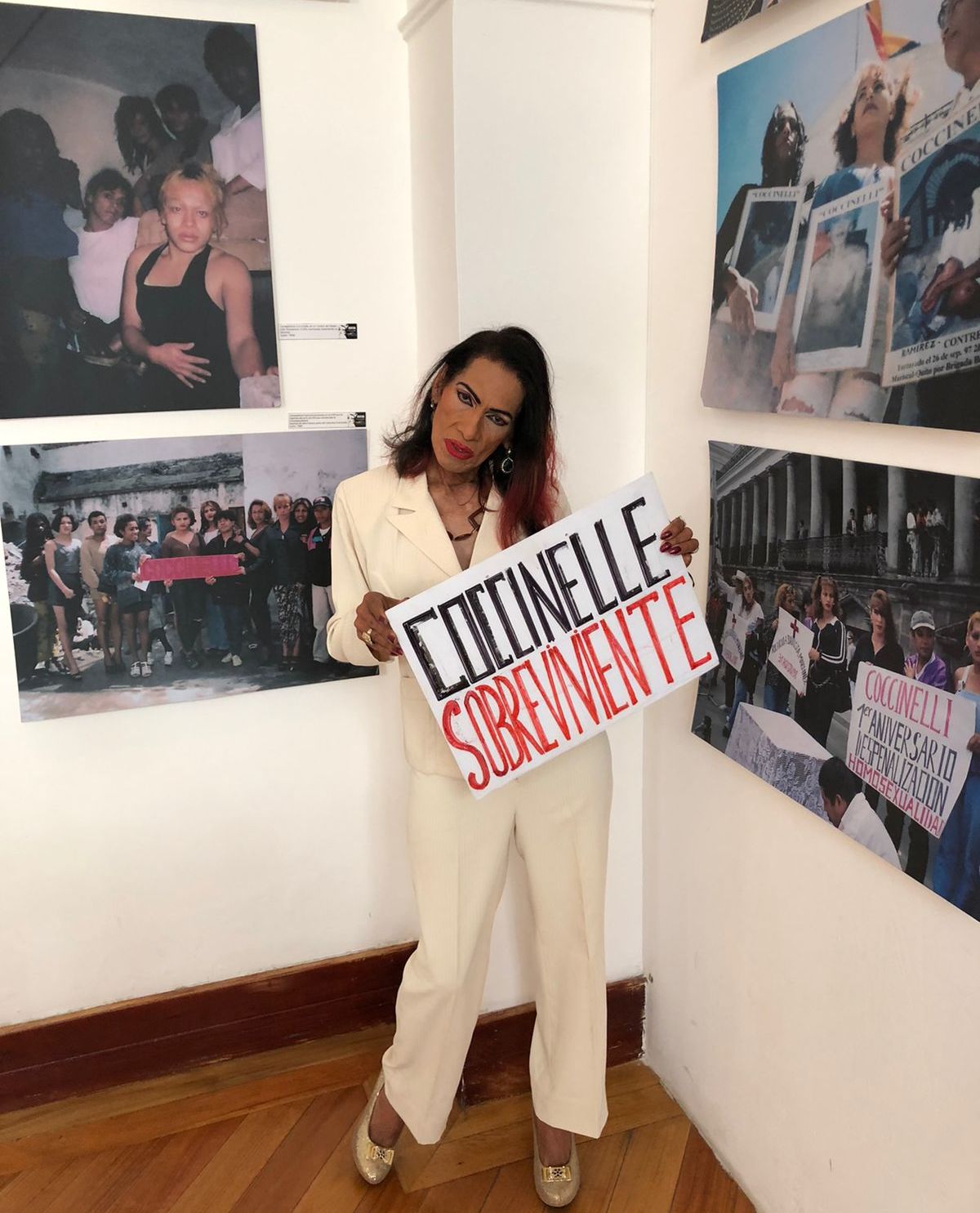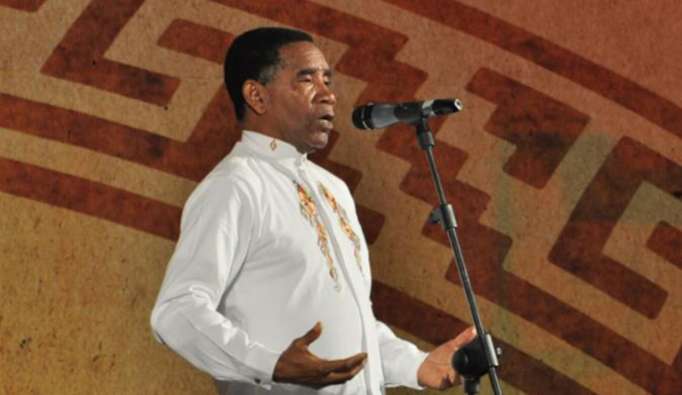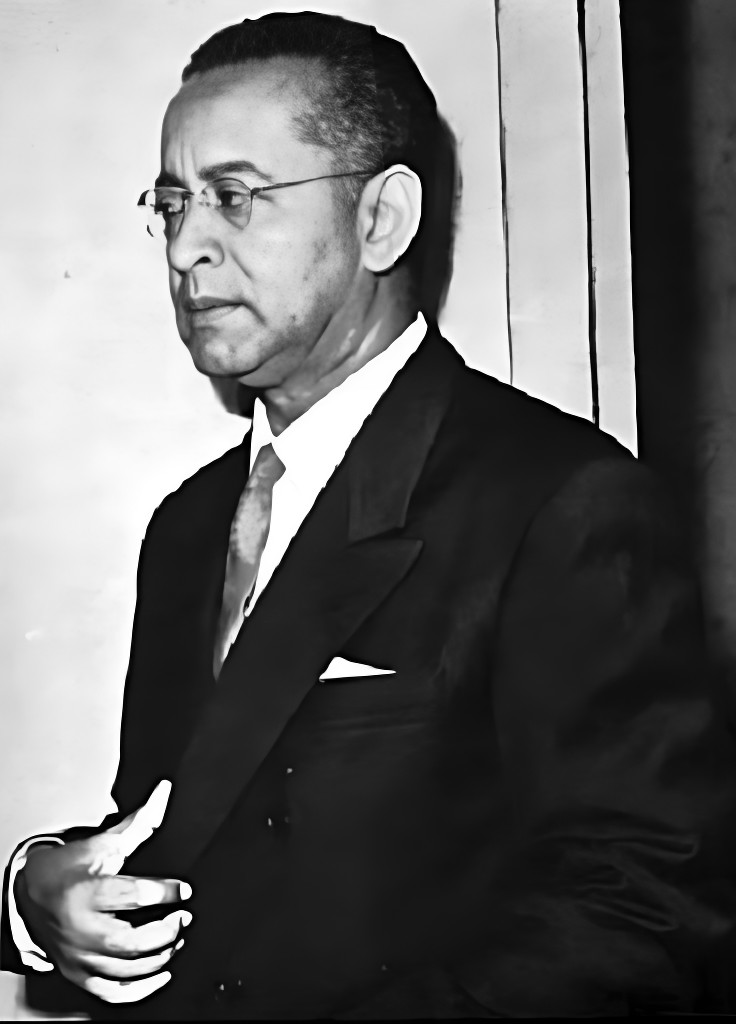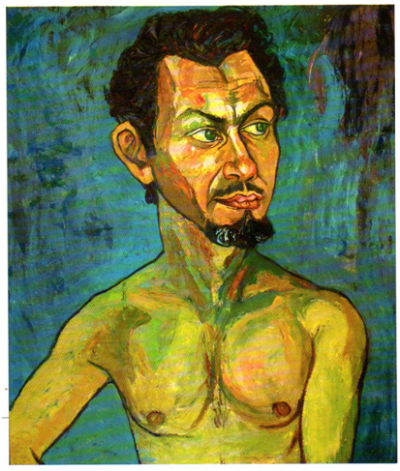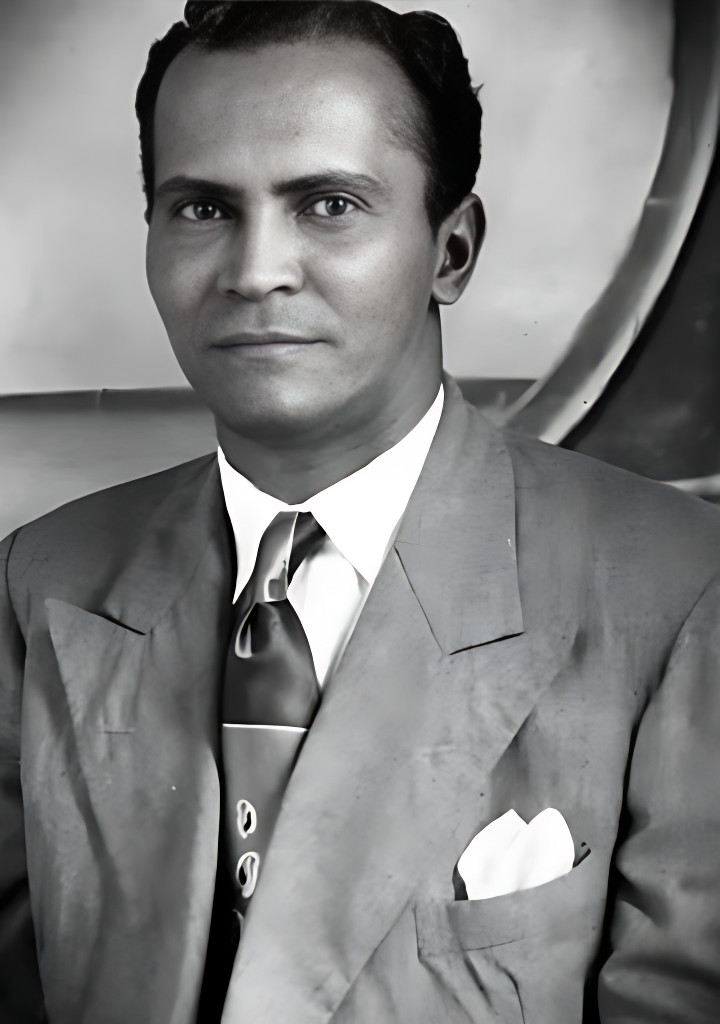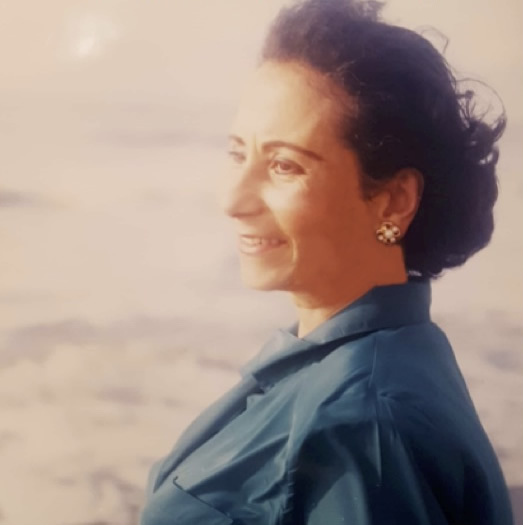Rodolfo Bueno Ortiz (Esmeraldas, 1937) is an Ecuadorian mathematician, writer, and intellectual. He became the first Ecuadorian to earn a degree in mathematics after studying in the Soviet Union, where he also developed a deep interest in literature. Bueno is the author of several works, including Pasiones a la sombra del Kremlin (1999), a novel that explores themes of desire and power against the backdrop of Soviet life, and Mojiganga (2011), a political satire. He has also written extensively on historical and political topics, blending his scientific rigor with philosophical and social commentary, and was awarded the Pushkin Medal in Russia for his cultural contributions.
Continue reading “Rodolfo Bueno Ortiz”Category: Writers from Esmeraldas
José Páez Gracia
José Patricio Páez Gracia, an Ecuadorian author and historian, has emerged as a pivotal figure in documenting the rich history of Esmeraldas, a province in Ecuador. His book, “Esmeraldas del ayer,” published by the Ministry of Culture and Heritage and the National Institute of Cultural Heritage in 2019, spans 141 pages and is enriched with around 130 photographs. Páez’s work provides an insightful look into the region’s past, highlighting key historical events and figures such as Luis Vargas Torres and Eloy Alfaro. His dedication to this project, rooted in his family’s legacy of educators, showcases his commitment to preserving and promoting the cultural heritage of Esmeraldas for future generations.
Continue reading “José Páez Gracia”George Perdomo Rodríguez
George Perdomo Rodríguez (Muisne, Esmeraldas, 1952) is an Ecuadorian writer and poet. After leaving his homeland, he settled in Palma de Mallorca, Spain. Through his literary works, he explores themes of immigration, capturing the struggles, aspirations, and emotions of those who leave their homeland in search of a better life. George Perdomo Rodríguez’s writing reflects his own experiences and offers a profound understanding of the human condition, resonating with readers both in Ecuador and Spain. “His books include: Balada del emigrante,” “Los sueños de las palomas,” “Saga de emigrantes,” “Senderos de Espumas,” “Isla de Ensueños,” among others.
Continue reading “George Perdomo Rodríguez”Diógenes Cuero Caicedo
Diógenes Cuero Caicedo (Esmeraldas, October 28, 1948 – Ibidem, January 3, 2019) was an Ecuadorian poet, cultural activist, lawyer, university professor, and a prominent voice in celebrating and affirming black identity. Born in the poor black community of San Francisco de Ónzole in the Eloy Alfaro Canton, Cuero dedicated his life to promoting the culture and heritage of Afro-Ecuadorians. His literary journey began in the 1980s, using poetry as a means to explore themes of blackness, social justice, and the rich cultural legacy of his community. Through works like “Tsunami, Mitología y Poesía” and “Las Huellas de la Carimba,” Cuero illuminated the experiences, struggles, and contributions of Afro-Ecuadorians, challenging stereotypes and fostering a deeper understanding and appreciation of black identity. His impact as a poet and cultural advocate continues to resonate, leaving a lasting legacy in Ecuadorian literature. He held a doctorate in Jurisprudence and for 20 years hosted a radio program called “Raíces” (Roots), where he spoke about the culture of his people.
Continue reading “Diógenes Cuero Caicedo”Máxima Angulo Borja
Máxima Angulo Borja, born in San Lorenzo, Esmeraldas, is an Ecuadorian poet. Her poetry is deeply rooted in personal experiences and activism, exploring themes of Afro-Ecuadorian identity. In 2018, Angulo published her book “Pininos Literarios” through the House of Ecuadorian Culture of Esmeraldas. This work delves into Afro-Ecuadorian culture, incorporating mythological characters such as La Tunda, El Riviel, and La Gualgura to emphasize their cultural significance. The book also pays tribute to the marimba, a traditional musical instrument in Esmeraldas. Angulo’s writing resonates with readers through its accessible language and vivid descriptions, shedding light on social realities and preserving ancestral customs. Currently residing in Muisne, a coastal town in the southwest of Esmeraldas province in northwestern Ecuador, Máxima Angulo Borja works as a literature and language teacher at Unidad Educativa Muisne.
Continue reading “Máxima Angulo Borja”Orlando Tenorio
Orlando Tenorio Cuero (Esmeraldas, May 22, 1945) is an Afro-Ecuadorian poet and writer. Tenorio’s poetry explores a variety of topics, providing deep observations on social consciousness, struggle, and the human condition. His notable books include “Desde atrás de la vida” [From Behind Life], “El Alfabeto de las golondrinas” [The Swallows’ Alphabet], and “Epistlas para el hombre y el mar” [Epistles to Man and the Sea]. Tenorio also served as president of the Esmeraldas chapter of the House of Ecuadorian Culture (Casa de la Cultura Ecuatoriana), displaying his dedication to fostering arts and culture in his region.
Continue reading “Orlando Tenorio”Nancy Carlín Iglesias
Nancy Carlín Iglesias de Lujano (Esmeraldas, March 31, 1937) is an Ecuadorian poet. She called both Esmeraldas and Guayaquil home at different stages of her life. In 1960, she achieved recognition with the publication of a notable collection of poems titled “Este paisaje llamado día” [This Landscape Called Day], released by the Publications Department of the University of Guayaquil. Her exceptional talent as a poet led to the inclusion of her work in prominent anthologies such as “Espirales Poéticas,” “Presencia de la mujer ecuatoriana en la poesía,” “Cuaderno de Poesia,” and “Lirica Hispana” (Venezuela). During the late 1950s, Nancy contributed to newspapers or magazines such as La Hora, Nuevo Diario La Hora, La Nación (Diario Matutino), and Cronica Universitaria. Following her marriage in 1965, Nancy took a hiatus from publishing poetry, but her love for the art form remains undiminished. She continues to write poems for personal enjoyment, as well as for her family and on special occasions. She currently resides in Las Vegas, Nevada where she now goes by her married name, Nancy Lujano.
Continue reading “Nancy Carlín Iglesias”Yuliana Ortiz Ruano
Yuliana Ortiz Ruano (Limones, Esmeraldas, 1992) is an Ecuadorian poet and writer. She has had several of her poems published in both printed and digital magazines. Among her published poetry books are “Sovoz” (2016), “Canciones desde el fin del mundo” (2018), and “Cuaderno del imposible retorno a Pangea” (2021). In 2017, Yuliana received an honorable mention at the international poetry festival “Poetry in Parallel Zero.” She was also awarded the National Literature Award in 2021 in the poetry category for her remarkable contributions to the field. Currently, she serves as an editor and anthologist for the online poetry magazine Cráneo de Pangea. Yuliana’s debut novel, “Fiebre de carnaval” (Carnival Fever), was published in 2022 and received critical acclaim. In 2023, she won the prestigious IESS First Novel Prize in Italy, which recognizes the best first novel by a Latin American author under the age of 35. As part of this award, her book will be translated into Italian. Her novel was also recognized as one of the recommended books of 2022 by the Spanish edition of Vanity Fair magazine and received high praise from author Mónica Ojeda, who named it her favorite novel of the year. Currently, Yuliana Ortiz Ruano resides in Guayaquil, Ecuador.
Continue reading “Yuliana Ortiz Ruano”Purita Pelayo
Purita Valentina Pelayo, also known by the pseudonym Alberto Cabral (Esmeraldas, March 24, 1957) is an Ecuadorian transgender activist and author. She was one of the founders and the president of the Coccinelle Association, the first organization of transgender people in the history of Ecuador, which played a leading role in the campaign for the decriminalization of homosexuality in the country, which achieved its goal in November 1997. She is also the author of the award-winning non-fiction work “Los fantasmas se cabrearón” (2017), which recounts police abuse and the birth of LGBT activism in Ecuador at the end of the 20th century.
Continue reading “Purita Pelayo”Carmen Inés Perdomo Gutiérrez
Carmen Inés Perdomo Gutiérrez (Esmeraldas, 1973) is an Ecuadorian poet and journalist. She has contributed to magazines and periodicals in Ecuador. She is the author of three poetry collections: “Silencio en llamas” (2005), “Naufragio del Canto” (2008), and “Tempestad en la Floresta” (2013). Her poems have also been included in several national and international poetry anthologies. She obtained third place in the Gabriela Mistral women’s poetry contest. During the 2007–2009 biennium, she held the position of secretary of the Ecuadorian Society of Writers (SEDE).
Continue reading “Carmen Inés Perdomo Gutiérrez”Antonio Preciado
Antonio Preciado Bedoya is an Afro-Ecuadorian poet, university professor and diplomat. He was born in Esmeraldas on May 21, 1941. He was director of the Municipal Center of Culture of the city of Esmeraldas and President of the Esmeraldas chapter of the House of Ecuadorian Culture. For 23 years he was director of the Department of Culture of the Central Bank of Ecuador and rector of the University of Esmeraldas. He has been dubbed the “Poet of the Diaspora.” Together with Nelson Estupiñán Bass, Preciado is considered one of the greatest exponents of Esmeralda poetry. Siete veces la vida (1967) is widely regarded as his most famous collection of poems. Some of his work has been translated into English, French and Romanian.
Continue reading “Antonio Preciado”Adalberto Ortiz
Adalberto Ortiz Quiñones (Esmeraldas, February 9, 1914 – Guayaquil, February 1, 2003) was an Afro-Ecuadorian novelist, short story writer, poet, professor and diplomat. Among his most important books are: Juyungo (1942, novel; English translation by Susan Hill and Jonathan Tittler, 1983); Earth, Sound and Drum (1953, poetry); Entundada (1971, short story). His most defining feature as a writer was the incorporation of the elements of afro-Ecuadorian culture, enriching his literary vocabulary with its jargon, its elasticity and its rhythm. In 1995 Ortiz was awarded the Eugenio Espejo Prize, Ecuador’s most important literary award.
Continue reading “Adalberto Ortiz”Humberto Moré
Emilio Humberto Moré, born Lalot Rivadeneira Plata (Esmeraldas, April 14, 1929 – Havana, Cuba, 1984) was an Ecuadorian painter, sculptor, muralist, poet, writer, and art critic. He is widely regarded as one of Ecuador’s most significant painters. He developed his own style which he called “Functional Signology.” His primary contribution to literature is in the areas of art criticism and poetry. His published works include: “El chasqui dormido” (1965), “Actualidad pictórica ecuatoriana” (1970), “Evaluación de los ismos” (1968), and the poem collection “Bolívar sol de América” (1983). In 2011, Moré’s son Leonardo Rivadeneira Chaw released an artistic retrospective on his father’s work entitled “Humberto Moré y su signología.”
Continue reading “Humberto Moré”Nelson Estupiñán Bass
Nelson Estupiñán Bass (Sua, Esmeraldas, September 19, 1912 — Pennsylvania, United States, March 3, 2002) was an Afro-Ecuadorian novelist, short story writer, poet, essayist, journalist and diplomat. He served as the president of the Esmeraldas chapter of the House of Ecuadorian Culture. His first novel Cuando los guayacanes florecían (1954; translated into English as When the Guayacans Were in Bloom, 1987) is widely read in Ecuador and Latin America, and has been translated into English, German, French and Russian. In 1993 Bass received Ecuador’s highest literary honor, the Eugenio Espejo Award. In 1998, Estupiñán Bass was nominated for the Nobel Prize in Literature. While giving a series of lectures in 2002 at Penn State University Bass became ill with pneumonia and succumbed to the deadly illness at the Hershey Medical Center on March 3, 2002
Continue reading “Nelson Estupiñán Bass”Luz Argentina Chiriboga
Luz Argentina Chiriboga Guerrero (Esmeraldas, Ecuador, April 1, 1940) is an Afro-Ecuadorian writer known for her exploration of Afro-Hispanic cultural identity and the challenges faced by women. Her work spans novels, short stories, poetry, and essays, focusing on themes such as race, gender, and sexuality within patriarchal and racially segregated societies. Chiriboga’s most notable works include Bajo la piel de los tambores (Drums Under My Skin) and Jonatás y Manuela, which highlight the complexities of Afro-Ecuadorian identity and female autonomy. She has won multiple awards and her work has been translated into several languages, including English, French, and Italian.
Continue reading “Luz Argentina Chiriboga”
